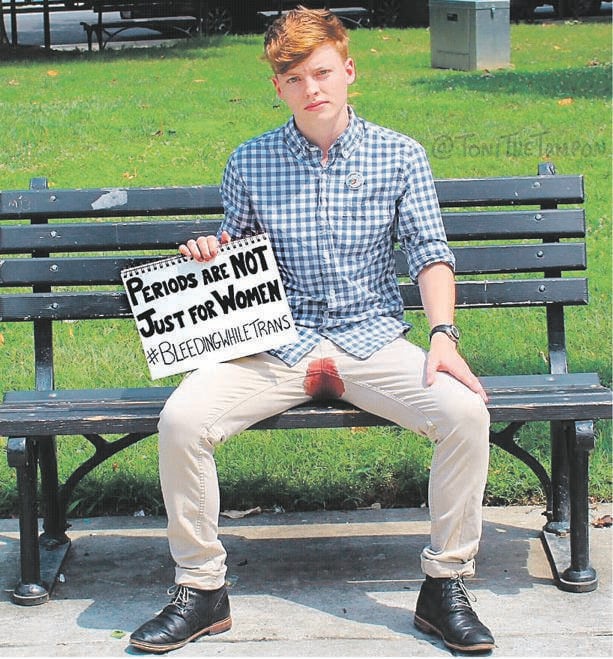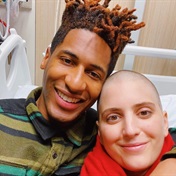
The period positivity movement has mostly been about the experience of women, but this narrative has one major flaw … it ignores an entire section of people who menstruate, writes Rhodé Marshall.
This is the truth of the menstrual taboo – it hurts everyone. Despite how the conversation about periods make most people uncomfortable, the reality is that we all come from the same place … a uterus. So the way in which the process that gives us all life is demeaned means that we are diminishing ourselves.
Society views menstruation as something that only cisgender women experience, but that is simply not the case because not everyone who gets a period is a woman, just like not every woman gets a period.
It’s important to note how periods are an even greater pain if you have gender dysphoria or illnesses such as polycystic ovary syndrome or endometriosis.
It’s a fact that people don’t like to acknowledge that women bleed every month. But is it just women who bleed? No. Transgender men and non-binary people also get periods.
Women already have a hard time having open conversations about their periods, and this shame is even worse for transgender and non-binary people, which is greatly attributed to us as society failing to normalise the conversation about periods.
Menstrual health is tied into the far greater problem of access to medical care for transgender men and women. Gillette, one of the largest marketers of razors and other products for men, recently released an amazing ad that features a transgender boy being taught how to shave by his father – a first for trans visibility in mainstream media and specifically in personal hygiene products.
While pads and other sanitary products are always marketed to cisgender women, an entire group of people is being excluded and ignored.
In general, the taboo around menstruation is a flawed cultural logic, where everyone is expected to participate in this falsehood that there is something wrong with bleeding every month, and that it is essentially unclean, weird and abnormal. But the opposite is true and this culture is harmful to anyone who menstruates.
As cisgender people, we have been socialised to think that periods exclusively affect women and girls, which just promotes the idea that they don’t and will never affect men – and this is particularly stigmatising for transgender men who menstruate.
And then, on the other hand, transgender women are excluded because of the strong link that is created between menstruation and the idea of femininity because the socially accepted model of womanhood still rests upon reproduction.
Inspiring society to view periods as a natural physical process rather than a cause of shame and humiliation is vital to build a more equal society. Not talking about menstruation means a quiet agreement with the culture that allows separate gendered domains to exist, thus validating the idea that anything outside the cisgender male experience is abnormal.
The world operates in a very binary manner – from the moment parents are asked whether they are having a boy or girl, to discussions about gender equality just being about women and men. Anyone whose gender identity falls outside the box has difficulty navigating through life only because society insists on being ignorant to the presence of gender beyond the binary, or they simply refuse to learn about it.
Even beyond politics, mainstream media deeply advocates embracing and celebrating periods as a part of womanhood, which is problematic for all those people it excludes.
While the period positivity movement aims to destigmatise and normalise menstruation, as well as dispel the shame related to it, this dialogue on menstruation is being had against the backdrop of a heavily gendered society with a woman-centric slant to the issue. Hopefully, the encouragement to be aware about our language will mean that the transgender community will gain greater awareness and acceptance of their experiences in relation to it being validated socially and medically.
What could be a step towards trans inclusivity in the movement of period positivity could be the use of sensitive trans-inclusive language in the conversation around menstruation, particularly by looking at topics such as the legitimacy of the problems trans people face when it comes to their periods. In terms of language, using the term “menstruator” rather than “women menstruating” can be influential in changing the perception of menstruation.
It’s simple – we just need to look beyond the binary and respect the different ways of being human.




 Publications
Publications
 Partners
Partners








